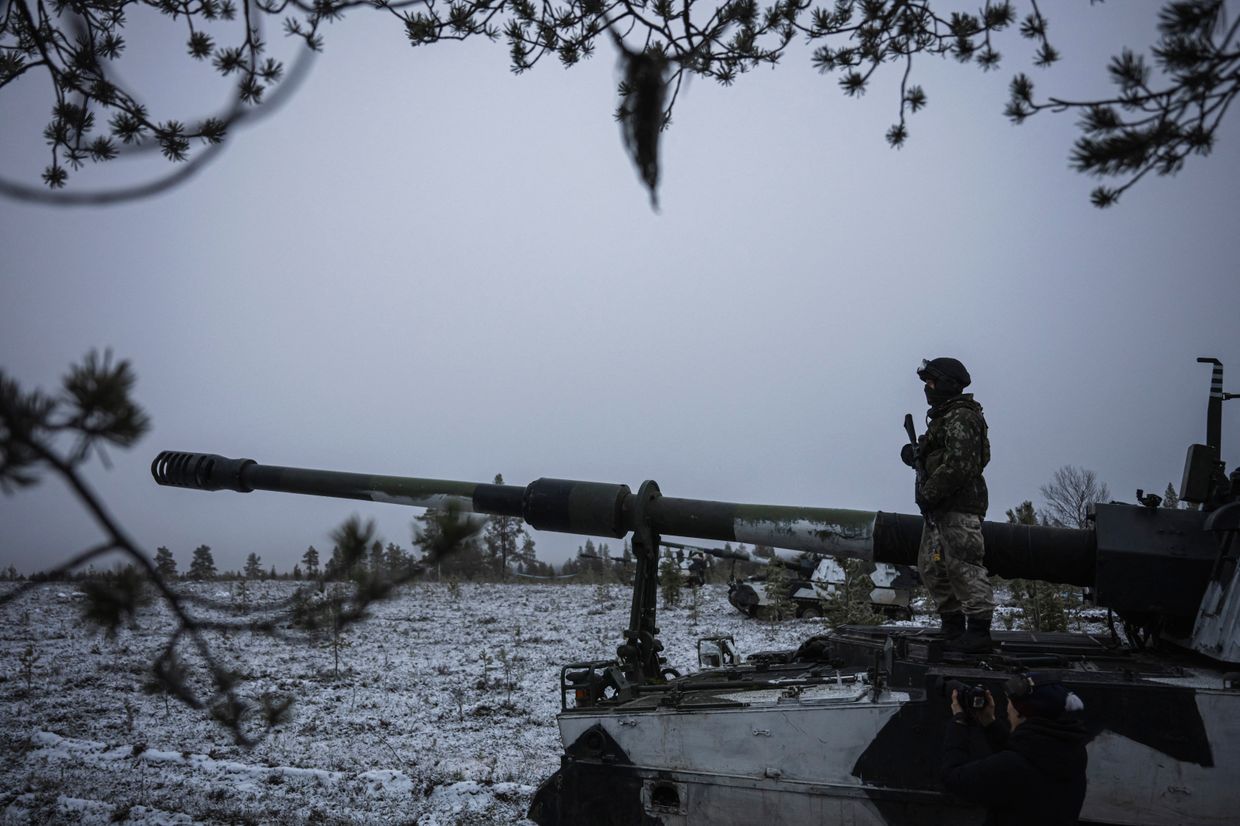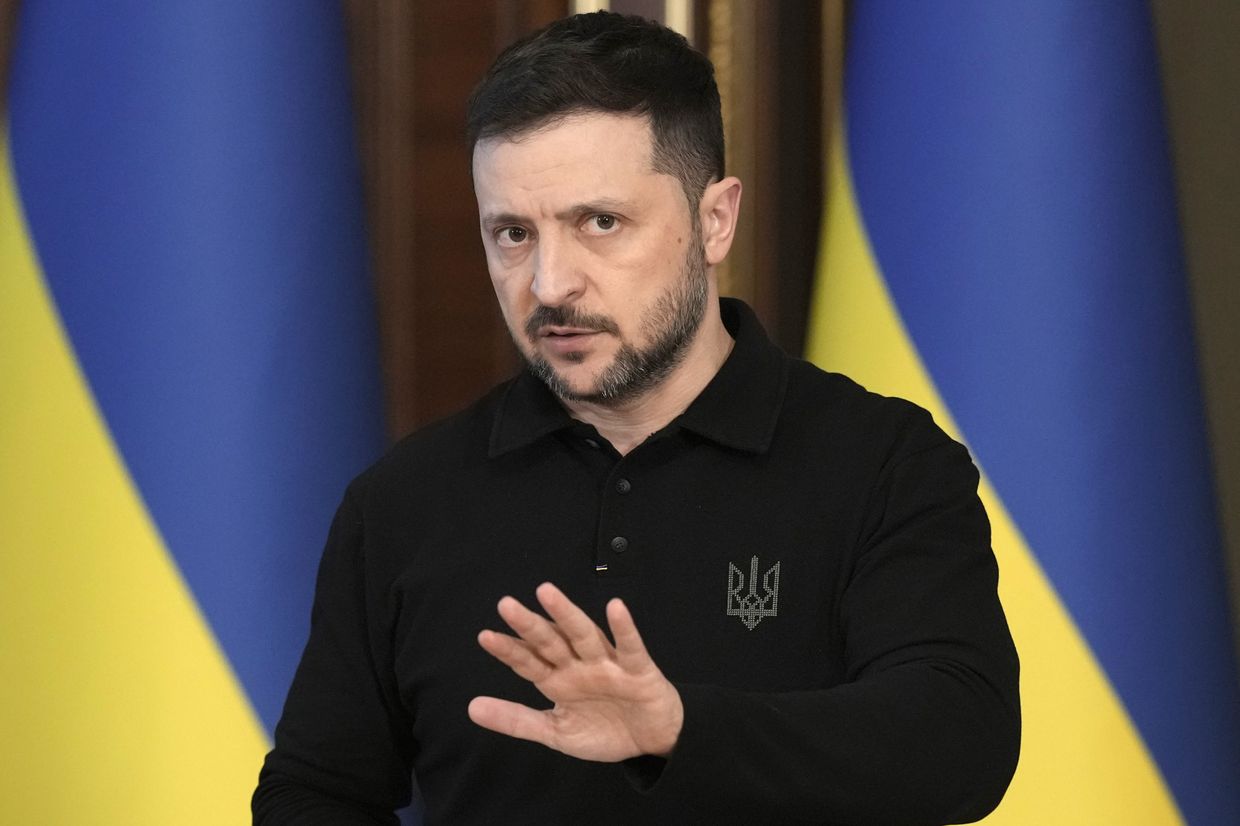"I have great hope that an agreement for a ceasefire in Ukraine will be reached this weekend," German Chancellor Friedrich Merz said on May 9, shortly before traveling to Kyiv alongside the leaders of France, Poland, and the U.K.
U.K. Prime Minister Keir Starmer, French President Emmanuel Macron, German Chancellor Friedrich Merz, and Polish Prime Minister Donald Tusk will arrive in Kyiv early on May 10.
The United States embassy in Kyiv on May 9 issued a warning that Russia could launch "a potentially significant" attack in the coming days, despite Putin's self-declared Victory Day "truce."
The sanctioned oil tankers have transported over $24 billion in cargo since 2024, according to Downing Street. The U.K. has now sanctioned more shadow fleet vessels than any other country.
The sanctions list includes 58 individuals and 74 companies, with 67 Russian enterprises related to military technology.
Washington and its partners are considering additional sanctions if the parties do not observe a ceasefire, with political and technical negotiations between Europe and the U.S. intensifying since last week, Reuters' source said.
Despite the Kremlin's announcement of a May 8–11 truce, heavy fighting continued in multiple regions throughout the front line.
Putin has done in Russia everything that Luiz Inacio Lula da Silva had been against in Brazil.
The Kyiv Independent’s contributor Ignatius Ivlev-Yorke spent a day with a mobile team from the State Emergency Service in Nikopol in the south of Ukraine as they responded to relentless drone, artillery, and mortar strikes from Russian forces just across the Dnipro River. Nikopol is located across from the Russian-occupied Zaporizhzhia Nuclear Power Plant in the city of Enerhodar.
Russia's military building up at Finland's border over potential NATO clash, WSJ reports

Russia is expanding its military infrastructure near the border with Finland in what experts and officials say could be a preparation for a potential clash with NATO, the Wall Street Journal reported on April 28.
These efforts include expanding military bases near the Russian city of Petrozavodsk, around 160 kilometers (100 miles) east of Finland, the planned site for a new headquarters that could potentially command tens of thousands of troops, the outlet wrote.
Western military and intelligence officials are reportedly warning that these units could form the "backbone" of Russia's forces preparing to confront NATO.
Since the start of Russia's all-out war against Ukraine, NATO officials have increasingly warned Moscow could launch aggression against the alliance's members in the coming years.
Finland, which shares a 1,300-kilometer (800-mile) border with Russia, has accused Moscow of ramping up hybrid operations against the Nordic country since it joined NATO in 2023.
Russia's military is currently heavily engaged in Ukraine, suffering massive losses in manpower and equipment. This has forced Moscow to redeploy forces from other areas over the past years, with a media investigation saying last June that most of the Russian ground units previously stationed near Finland were dispatched to Ukraine.
Christopher Cavoli, commander of U.S. forces in Europe, nevertheless warned earlier this month that Russia is rebuilding its forces much faster than previously anticipated.
"Despite extensive battlefield losses in Ukraine, the Russian military is reconstituting and growing at a faster rate than most analysts had anticipated," Cavoli told a U.S. Senate committee.
According to the general, the U.S. expects Russia to produce 250,000 artillery shells per month, which could help it build a stockpile three times larger than the U.S. and Europe combined.
Russian Defense Minister Andrei Belousov said last December that Russia must be ready for a potential conflict with NATO in the next 10 years. Moscow has also issued a number of veiled and overt threats to the West over its support for Kyiv, including warnings of a possible nuclear response.
NATO countries in Russia's vicinity have intensified their preparations for a possible conflict. Poland and the Baltic countries moved to abandon a treaty banning land mines and are strengthening the borders shared with Russia and its ally Belarus while urging higher defense spending across the alliance.

Most Popular

After 3 years of full-scale war in Ukraine, Europe announces plan to ban all Russian gas imports

Ukraine, Europe's ceasefire proposal includes US security guarantees, no recognition of Crimea, Reuters reports

Journalist Roshchyna's body missing organs after Russian captivity, investigation says

After Russia's deadly attack on Kyiv, Vance reposts denunciation of Zelensky

Ukrainian sea drone downs Russian fighter jet in 'world-first' strike, intelligence says
Editors' Picks

How medics of Ukraine’s 3rd Assault Brigade deal with horrors of drone warfare

As Russia trains abducted children for war, Ukraine fights uphill battle to bring them home

'I just hate the Russians' — Kyiv district recovers from drone strike as ceasefire remains elusive



